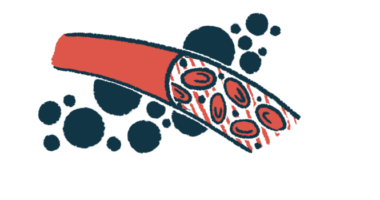Reminding Myself It’s Important to Unplug the Gadgets and Rest

Do you find yourself scrolling through emails or multitasking when you sit down to rest? If you can’t seem to stop working or focusing on tasks, you are not alone. Our society has a troubling dilemma with overworking.
Recently, I experienced an epiphany of sorts, and I’m now learning to rest fully and unplug on some days. Well, maybe not an entire day yet, but at least a few hours. It’s a start.
Those of us in chronic disease communities often refer to the “spoon theory“ to help others relate to our challenges with fatigue. The spoon theory is a metaphor to explain our finite daily energy, which we refer to as “spoons.” Each activity requires a number of spoons that can only be replaced by resting.
Unfortunately, simply resting is not that simple of a task for me or many readers. Also, for caregivers, maintaining a loved one’s health, a job, and other tasks can be overwhelming. Because our society creates an environment in which multitasking is expected, we have difficulty fully relaxing.
I’ve always struggled with rest, which I didn’t realize until my therapist brought it up two years ago. She asked me what I thought resting meant. I struggled to answer and tried to change the subject.
During a brief hospitalization last April, my medical team again reminded me of the importance of rest. They asked me what I do to rest. I said I call family members and loved ones, write in my journal, check emails, and send cards to people who need them.
To my disbelief, they told me those are not restful actions, and they reminded me that stress exacerbates my PH symptoms. During stressful times, I note an increase in shortness of breath, heart palpitations, and brain fog. Therefore, failing to replenish my energy (or spoons) can be detrimental to my health.
Start by turning off your phone
I’m usually nervous about turning off my phone, even to rest. But I keep reminding myself of the benefits this relatively simple change has for my health. I’m learning to put my phone on silence and avoid immediately answering any calls or texts.
Baby steps count as I work toward this goal. I recently muted my phone for almost an entire day and did just fine! The world didn’t fall apart.
If you’re in the same boat, you can find several app suggestions online to help defeat your phone addiction.
We all know that life with PH can be overwhelming. We may have several doctors’ appointments in a week, plus insurance calls and other responsibilities. And let’s not forget those terrible specialty pharmacy calls. The number of calls is exhausting.
Taking breaks from all of these administrative health duties can be so helpful. Don’t forget to unplug for at least 30 minutes between calls to rebalance yourself and calm any frustrations. Schedule those breaks and hold yourself accountable for taking them seriously. Properly planning for breaks is the key to sanity!
Do you meditate?
Speaking of rebalancing yourself, meditation can be helpful, whether via guided apps or simply by sitting in a calm environment for as little as five minutes. The TV commercial for the Calm app is one of my favorites. Its rainstorms offer the quietness I crave.
Have you found creative ways to help you unplug and rest while you replenish your spoons? Please share your tips in the comments below.
***
Note: Pulmonary Hypertension News is strictly a news and information website about the disease. It does not provide medical advice, diagnosis, or treatment. This content is not intended to be a substitute for professional medical advice, diagnosis, or treatment. Always seek the advice of your physician or other qualified health provider with any questions you may have regarding a medical condition. Never disregard professional medical advice or delay seeking it because of something you have read on this website. The opinions expressed in this column are not those of Pulmonary Hypertension News or its parent company, Bionews, and are intended to spark discussion about issues about pulmonary hypertension.








Leave a comment
Fill in the required fields to post. Your email address will not be published.